GwinnettForum | Number 22, 82 | Nov. 14, 2023
THIS TWO-STORY BUILDING at left on South Peachtree Street in downtown Norcross was for many years the home of the Norcross Masonic Lodge. It is now being renovated by its new owner. For more details, read Gene Ramsey’s story in Today’s Focus immediately below.
TODAY’S FOCUS: Norcross Masonic Lodge disbands, sells downtown building
EEB PERSPECTIVE: Roads, sleeping, a novelist, first newspaper and Bulldogs
SPOTLIGHT: Aurora Theatre
FEEDBACK: Send us your thoughts
UPCOMING: GGC’s nursing program wins accreditation
NOTABLE: Todd is new VP for communications at GGC
RECOMMENDED: Hamburger, A Global History by Andrew E. Smith
GEORGIA TIDBIT: Thomas Butler King was planter, U.S. government official
MYSTERY PHOTO: Classical building is this week’s mystery
CALENDAR: Why the Bible Began is a talk Nov. 15 at the Lawrenceville library
Norcross Masonic Lodge disbands, sells downtown building
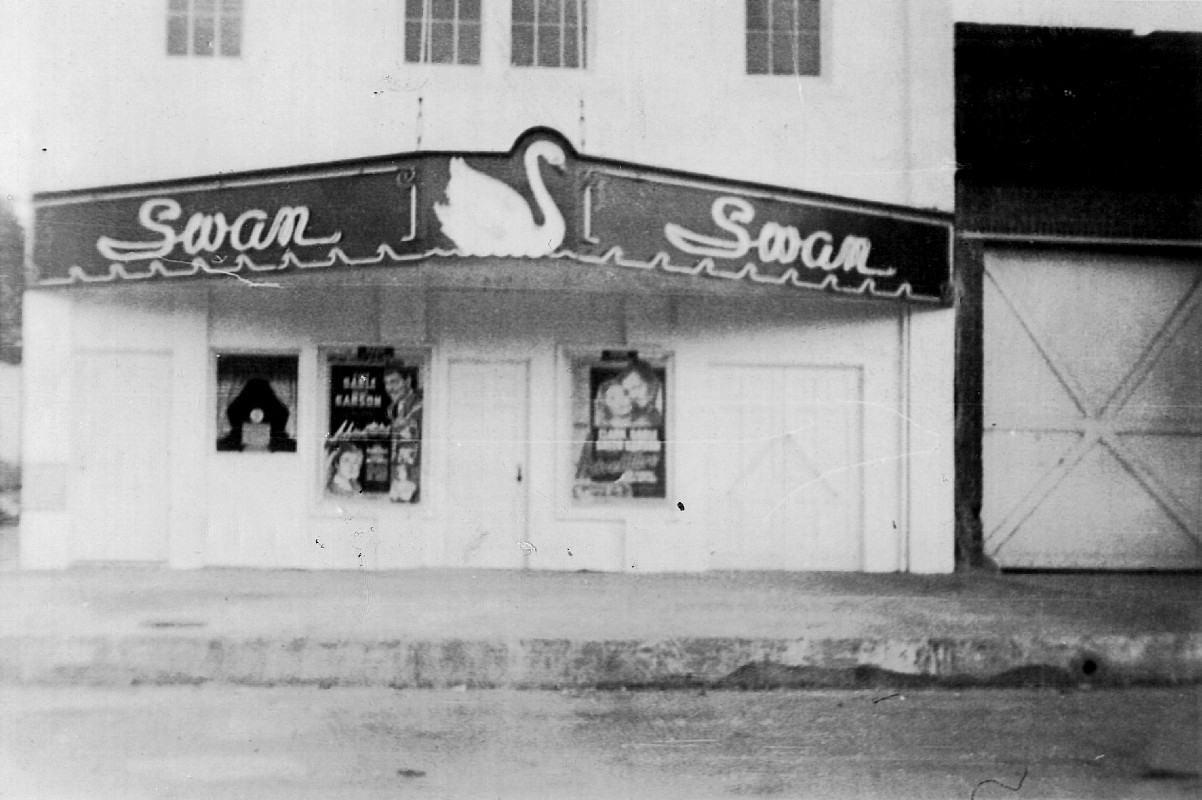
The best-known tenant of the Norcross Masonic building was likely the Swan Theater, a first floor movie theater run in the 1950s by Ray and Estelle Ziebell, who died in 1958.
By Gene Ramsay
NORCROSS, Ga. | The venerable Norcross Masonic Lodge, No. 228 of the Free and Accepted Masons, third oldest lodge in Gwinnett, faced with an aging membership and a building that needed repairs, has disbanded. It sold its building on South Peachtree Street in 2022.
The Masonic Order, a fraternal organization, traces its roots back at least to the 1300s. It has several million members around the world today, organized into lodges in various locations. James Oglethorpe, who came from Great Britain to establish the Georgia colony in 1733, was a member of the order. Early settlers wanted to continue their masonic activities, and as such, the Solomon Lodge in Savannah, the first lodge in Georgia, was founded in 1734. As settlers moved to the interior of Georgia more local lodges were established. By 1859 there were over 200 active lodges in the state.
The Lawrenceville lodge, the first in Gwinnett County, was founded in 1850, and it was followed by the Yellow River Lodge in southwestern Gwinnett, founded in 1858. The first meeting of the Yellow River lodge had 24 members by the end of their first year. D. P. McDaniel was the first Worshipful Master of the lodge (the head of the local lodge).
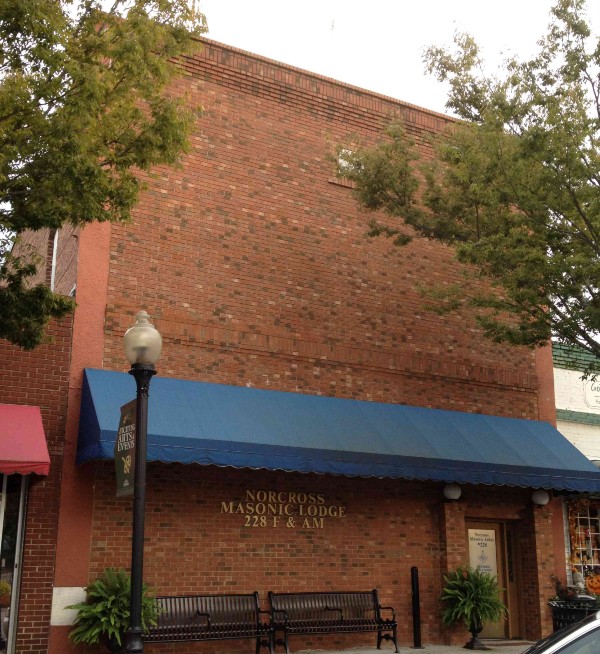
The red-brick two story building on South Peachtree Street was the home of the Lodge 228 of the Free and Accepted Masons since early in the city’s history.
The town of Norcross, founded in 1870 with the coming of the railroad, quickly became a center of commerce and education in southwestern Gwinnett. Several organizations active in the area prior to 1870 moved to Norcross to take advantage of its better access to transportation. The Yellow River Lodge moved its meeting in the new town, as did the nearby Methodist and Presbyterian churches that predated the town. Early on these organizations (along with a school and a newly-formed Baptist church) met in a two story wooden building constructed by community members on Church Street.
The Masonic lodge purchased the second floor of the building for their activities in 1871, and met there until 1907, when they sold their interest in the community building.
In the early 1900s members wanted a new facility, and this was accomplished when in 1909 the Masons moved to a new two-story brick building in the center of downtown Norcross, jointly owned by the members of the lodge. This building was designed to accommodate commercial activities downstairs and Masonic activities upstairs. A few years after it was completed, the Masons sold the first floor of the building to a local businessman. Over the 20th century, it attracted a number of tenants, including the local library, the offices of the City of Norcross and a retail store operated by local resident Gene Davenport.
The best-known tenant of the building was likely the Swan Theater, a movie theater run in the 1950s by Ray and Estelle Ziebell and occupied the first floor. After 1958, Swan Theater saw a decline in its business (because in part, no doubt, to national trends of that day – the growing popularity of television and the automobile). Eventually the theater closed and the Lodge purchased the first floor back from its then-owner in the 1960s and used it for lodge dinners and other social activities, and for the community breakfasts that the lodge staged several times per year.
This continued until the early 21st century. By then the lodge was faced with challenging future demographics, and an older membership, and voted to disband and sell the building.
- Have a comment? Send to: elliott@brack.net
Roads, sleeping, a novelist, first newspaper and Bulldogs
By Elliott Brack
Editor and Publisher, GwinnettForum
NOV. 14, 2023 | Work is on schedule in Duluth at Davenport Road and Buford Highway for its eventual opening of a new crossing across the Norfolk Southern Railroad tracks.
![]() City Engineer Margie Pozin reports: “We are waiting for the railroad to finish their work. They just installed new signals at the Brock Road crossing, and once all the electrical work is done, they will install the new signals at Davenport (at the grade crossing).
City Engineer Margie Pozin reports: “We are waiting for the railroad to finish their work. They just installed new signals at the Brock Road crossing, and once all the electrical work is done, they will install the new signals at Davenport (at the grade crossing).
“When that is complete, the Norfolk-Southern road crews will construct the new at grade crossing surfaces. At that point, the city’s contractor can finish paving the approach. So, we are probably on-target. We should be done sometime in the first quarter of 2024.”
She adds: “We’re keeping our fingers crossed.”
Sleeping idea: When you have trouble going to sleep, or wake up at 2 a.m. and can’t get back to sleep, what’s your solution? Years ago when Zell Miller started the Georgia Lottery, we began development of ideas on how we would spend all our winnings. So far, we haven’t been able to put that idea into practice, though we have revised how we will be spending that money several times when sleep is difficult.
Our whole concept is to start a non-profit, and give away money to good causes. But that reminds me of what philanthropist Scott Hudgens said years ago: “Giving away money is more difficult than making it.” That oughta keep us busy, for we suspect we could find plenty of people wanting charitable dollars.
But our first “mad” purchase after we win the lottery: never to fly commercial aircraft again. We’ll go private jet.
How do novelists and book authors do it? Take the routine author E.R. Doctorow adopted: “Here’s how it goes: I’m up at the stroke of 10 or 10:30. I have breakfast and read the papers, and then it’s lunchtime. Then maybe a little nap after lunch and out to the gym, and before I know it, it’s time to have a drink.”
It was on December 9 in 1793 that Noah Webster established New York City’s first daily newspaper. He called it The American Minerva and added a subtitle to the masthead, which read “Patroness of Peace, Commerce, and the Liberal Arts.” The paper was produced on Wall Street, near the birthplace of the New York Stock Exchange.
The American Minerva ran for 744 issues, from 1793 until 1796. Webster changed the name to The Commercial Advertiser in 1797. He sold the paper in 1803 and moved to New Haven, Conn., where he began work on his first dictionary. He published A Compendious Dictionary of the English Language in 1806, and then labored for two decades to produce his fully comprehensive dictionary (1828). Published in two volumes, it included scientific and technical terms, and words that were unique to American English, like squash, prairie, and skunk. As for The American Minerva, the paper continued under a series of titles, eventually becoming The New York Sun, which ceased publication in 1950.
How ‘bout them Dawgs? Saturday’s complete dominance of the Georgia Bulldogs over Ole Miss was beautiful to watch. After the Bulldogs were down 14-7, they dominated, driving again and again down the field, to a massive 52-17 victory. And while the offense sparkled, the defense played its best game, smothering Ole Miss with dispatch.
- Have a comment? Send to: elliott@brack.net
Aurora Theatre
 The public spiritedness of our underwriters allows us to bring GwinnettForum.com to you at no cost to readers. Today’s sponsor is Aurora Theatre, providing the best live entertainment in northeast Georgia. Aurora Theatre produces Broadway’s best alongside exciting works of contemporary theatre. Aurora Theatre manages Lawrenceville Arts Center (LAC) in partnership with the City of Lawrenceville. This $45 million world-class facility with five venues, has the ability to host a wide variety of performances, weddings, celebrations and community events both indoors and outdoors. Nestled on the historic downtown square, Lawrenceville Arts Center has FREE attached covered parking and is surrounded by restaurants and shops. Don’t miss any of the concerts, stand-up comedy, children’s programs, award-winning theatre, or Atlanta’s only professional Spanish language theatre, Teatro Aurora. Visit our website to learn more information and secure your seat today!
The public spiritedness of our underwriters allows us to bring GwinnettForum.com to you at no cost to readers. Today’s sponsor is Aurora Theatre, providing the best live entertainment in northeast Georgia. Aurora Theatre produces Broadway’s best alongside exciting works of contemporary theatre. Aurora Theatre manages Lawrenceville Arts Center (LAC) in partnership with the City of Lawrenceville. This $45 million world-class facility with five venues, has the ability to host a wide variety of performances, weddings, celebrations and community events both indoors and outdoors. Nestled on the historic downtown square, Lawrenceville Arts Center has FREE attached covered parking and is surrounded by restaurants and shops. Don’t miss any of the concerts, stand-up comedy, children’s programs, award-winning theatre, or Atlanta’s only professional Spanish language theatre, Teatro Aurora. Visit our website to learn more information and secure your seat today!
- For more information or to purchase tickets: http://lvilleartscenter.com/or call 678-226-6222.
- For a list of other sponsors of this forum, click here
Send us your thoughts
We encourage you to send us your letters and thoughts on issues raised in GwinnettForum. Please limit comments to 300 words, and include your hometown. The views of letters are the opinion of the contributor. We reserve the right to edit for clarity and length. Send feedback and letters to: elliott@brack.net.
GGC’s nursing program wins accreditation
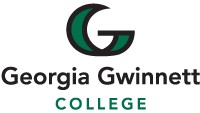 The baccalaureate degree program in nursing at Georgia Gwinnett College (GGC) has been re-accredited by the Commission on Collegiate Nursing Education (CCNE).The accreditation period will last 10 years.
The baccalaureate degree program in nursing at Georgia Gwinnett College (GGC) has been re-accredited by the Commission on Collegiate Nursing Education (CCNE).The accreditation period will last 10 years.
Dr. Diane White, dean of GGC’s School of Health Science, says: “We are so very proud to have achieved accreditation by the CCNE. This is a testament to the consistent, high quality of our program and the dedication of our faculty, staff and students.”
GGC’s nursing program will surpass 400 graduates at this semester’s commencement ceremony in December. Its graduates are working in a wide variety of roles in health care environments in Gwinnett and surrounding counties. The college’s nursing graduates have established a prestigious record of 90+ percent first-time pass rates on the NCLEX professional licensing exam. The spring 2023 graduating class achieved a 100 percent first-time pass rate.
Lawrenceville DAR to have 5th annual wreaths ceremony
Join the Philadelphia Winn Chapter, Daughters of the American Revolution (DAR), to honor American veterans at their fifth annual Wreaths Across America ceremony. This ceremony will be held on Saturday, December 16 at Noon at East Shadowlawn Memorial Gardens, 87 Scenic Highway, Lawrenceville. Also participating will be the Button Gwinnett Chapter, Sons of the American Revolution (SAR), the Elisha Winn Society, Children of the American Revolution (C.A.R.), Georgia State Society SAR Color Guard and Militia, and additional local community service organizations.
Those who choose to sponsor a wreath ($17 each), will be invited to place the wreath on the marker of a veteran’s grave following the ceremony. Consider joining a grateful nation in saying “Thank you for your service and sacrifice.”
You may sponsor a wreath online at www.wreathsacrossamerica.org/ga0265p, or send a check, made payable to the Philadelphia Winn Chapter to: Kathy Schmidt, Chapter Treasurer, 886 Marbrook Dr., Lawrenceville, Ga. 30044.
Todd is new VP for communications at GGC
Jacqueline Todd has been named associate vice president for communications at Georgia Gwinnett College (GGC). Todd, who joined the college in 2019 as public relations director, assumed the role on November 1 and will oversee a team that provides marketing, digital communications, internal and presidential communications, media relations, events and publication services to the college.
She has a master’s degree in public relations from Rowan University and is an accredited public relations practitioner. Her undergraduate degree is from Temple University. Todd brings 22 years of experience to the role, having worked in higher education at Clemson University and in the private sector. She has two sons, one a junior at Anderson College and the other a junior at Mill Creek High.
She succeeds Sloan W. Jones, who has been named GGC’s chief of staff in the office of the president.
Five suggestions for waste-cutting at Thanksgiving
Ever since President Abraham Lincoln proclaimed it a national holiday in 1863, Thanksgiving has been a cherished holiday in the United States. All these centuries later, it’s a time when friends and families gather together for a feast and the giving of thanks for their blessings.
To help you ensure that food waste is not a welcome guest at your Thanksgiving this year, Gwinnett Clean and Beautiful (GC&B) has compiled a list of five effective Turkey Day waste-cutting tips:
- Declutter your pantry and refrigerator. When your pantry and fridge are cluttered, it’s very easy for food to get lost in the back. You might find that you already have several ingredients you plan to purchase in preparation for your Thanksgiving feast.
- Determine the correct portions. Once you know who will be gracing your Thanksgiving table, it’s time to calculate the number of dishes to make and the proportions of each. Experts on the subject of poultry, Perdue Farms recommends roughly a half pound per person if you don’t plan to have any leftovers and one lb. per person if you DO want leftovers.
- Send guests home with leftovers. If you plan your portions so there will be leftovers for everyone to enjoy, have reusable storage containers on hand so you can send your guests home with their own post-Thanksgiving stash. They’ll love you for it!
- Compost food scraps and recycle containers. For the food scraps that are not leftovers, add them to your compost pile. As for all those glass jars and aluminum cans you used to make your feast, be sure to rinse them out and recycle them.
- Use leftovers to make new dishes. If you feel your family might tire of your Thanksgiving leftovers as they were initially served and reheated, you can get creative with their reimagining and maybe even start a new tradition!
Hamburger: A Global History, by Andrew E. Smith
![]() From Karen S. Harris, Stone Mountain: The beginnings of the hamburger were as a street food primarily designed to feed later shift workers in America in the 19th century. The street cafes featured hamburgers and hot dogs, which emerged from the dog wagons in the 1890s. The actual ‘sandwich’ was born in 18th century England when John Montagu, the Fourth Earl of Sandwich, ate a slice of beef between two slices of bread. These little-known facts about the birth of the hamburger are charmingly outlined in this text filled with enticing visuals. Also included is the growth of hamburger chains such as White Caste, White Tower, Burger King and the ubiquitous McDonalds that are now all over the world. Especially interesting is how the hamburger sandwich morphed into versions that fit the cultures throughout Europe and Asia. For example, in the Netherlands hamburgers are sold in vending machines! This will warm up your appetite for this world staple.”
From Karen S. Harris, Stone Mountain: The beginnings of the hamburger were as a street food primarily designed to feed later shift workers in America in the 19th century. The street cafes featured hamburgers and hot dogs, which emerged from the dog wagons in the 1890s. The actual ‘sandwich’ was born in 18th century England when John Montagu, the Fourth Earl of Sandwich, ate a slice of beef between two slices of bread. These little-known facts about the birth of the hamburger are charmingly outlined in this text filled with enticing visuals. Also included is the growth of hamburger chains such as White Caste, White Tower, Burger King and the ubiquitous McDonalds that are now all over the world. Especially interesting is how the hamburger sandwich morphed into versions that fit the cultures throughout Europe and Asia. For example, in the Netherlands hamburgers are sold in vending machines! This will warm up your appetite for this world staple.”
- An invitation: what books, restaurants, movies or web sites have you enjoyed recently? Send us your recent selection, along with a short paragraph (150 words) as to why you liked this, plus what you plan to visit or read next. Send to: elliott@brack.net
King was planter, U.S. government official
Thomas Butler King is remembered primarily as a planter/politician from coastal Georgia from who labored with mixed success to improve the nation’s nascent transportation and communication networks.
 King was born in Palmer, Mass., the son of Daniel and Hannah Lord King. He attended Westfield Academy in Massachusetts and studied law under his brother Henry in Allentown, Penns. In 1823 he followed another brother, Stephen Clay King, to southeast Georgia and took up the practice of law.
King was born in Palmer, Mass., the son of Daniel and Hannah Lord King. He attended Westfield Academy in Massachusetts and studied law under his brother Henry in Allentown, Penns. In 1823 he followed another brother, Stephen Clay King, to southeast Georgia and took up the practice of law.
In 1824 he married Anna Matilda Page, the daughter of a wealthy cotton planter who owned Retreat Plantation on St. Simons Island. After the deaths of Anna’s parents, the Kings made Retreat their primary home. They had ten children who survived to adulthood. King made substantial improvements to the Retreat property and in the 1820s managed to accumulate other neighboring lands and plantations. He subsequently lost these properties to his creditors, however, when the long-staple cotton economy fell on lean times in the 1830s and his own investments in various internal improvement schemes came to nothing.
King was never particularly content with planting, preferring politics and public life. Elected to the Georgia Legislature in 1832 as a senator from Glynn County. King served almost continuously until his election to the U.S. House of Representatives in 1838. As a state senator, King spent most of his energy promoting internal improvements, his lifelong passion. He supported state credit for private companies generally and improvements for the port at Brunswick specifically, then deemed as viable a candidate as Savannah for becoming Georgia’s primary seaport. Once elected to the U.S. Congress, King allied himself with the Whig Party, continued the promotion of internal improvements (including a railway across the isthmus of Panama), and became a vocal champion of America’s infant navy.
Bitterly disappointed at not being appointed secretary of the navy under U.S. president Zachary Taylor, King accepted an appointment as Taylor’s special agent to California. King stayed on in California as collector of the Port of San Francisco under U.S. president Millard Fillmore, failing twice in bids to represent the new state as a U.S. senator.
King’s travels from East Coast to West Coast and his long-time affection for internal improvements made him a natural proponent of the Southern Pacific Railroad Company. Throughout the 1850s he worked tirelessly as its lobbyist and representative.
Finally, King returned to Georgia in 1859 to bury both his oldest son, Thomas Butler King Jr., and his wife, Anna. In 1861 he accepted the post of Georgia’s representative to the courts of Europe and again left his plantation in the hands of his overseer and his fractured family. King returned to Georgia in 1862 and died in Waresboro (in Ware County) on May 10, 1864.
- To view the Georgia Encyclopedia article online, go to https://www.georgiaencyclopedia.org
Classical building is this week’s mystery
Here’s a close-up of a classical building with its elegant columns. Can you figure out where this building is located? Send your ideas to elliott@brack.net, and tell us in what town you live.
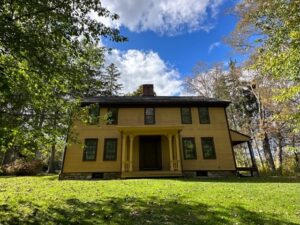 George Graf of Palmyra, Va. recognized the recent Mystery Photo “This is the home in Pittsfield, Mass., where Herman Melville and his family lived from 1850-1863. The original wood-frame and clapboard structure was built in the 1780s as a farmhouse. Melville wrote ‘Moby-Dick’ here as well as many other notable novels and short stories. Main season to visit is from May-October with daily tours, programs, hiking trails, and a museum shop.
George Graf of Palmyra, Va. recognized the recent Mystery Photo “This is the home in Pittsfield, Mass., where Herman Melville and his family lived from 1850-1863. The original wood-frame and clapboard structure was built in the 1780s as a farmhouse. Melville wrote ‘Moby-Dick’ here as well as many other notable novels and short stories. Main season to visit is from May-October with daily tours, programs, hiking trails, and a museum shop.
“Herman Melville’s mother changed the spelling of their last name. Despite his family’s wealth and pedigree—his mother, Maria Gansevoort, descended from one of the first Dutch families in New York, and his father, Allan Melvill, came from old Boston stock; young Herman had an unstable, unhappy childhood. Allan declared bankruptcy in 1830 and died two years later, leaving Maria with eight children under the age of 17 and a pile of debt from loans and Allan’s unsuccessful businesses. Soon afterward, Maria added an ‘e’ to their surname—perhaps to hide from collection agencies, although scholars are not sure exactly why.” The photo came from Susan McBrayer of Sugar Hill.
Also recognizing the photograph were Lou Camerio, Lilburn; Jay Altman, Columbia, S.C. and Allan Peel of San Antonio, Tex., who added “Melville named his home ‘Arrowhead’ because of the numerous native artifacts that were dug up around the property during planting season.”
- SHARE A MYSTERY PHOTO: If you have a photo that you believe will stump readers, send it along (but make sure to tell us what it is because it may stump us too!) Send to: elliott@brack.net and mark it as a photo submission. Thanks.
Bible talk set for Nov. 15 at the Lawrenceville library
![]() Better Cooking for a Better Environment: Holiday Edition will be presented Tuesday, November 14 at 6 p.m. at the Suwanee Branch of Gwinnett County Public Library. Help your holiday season go smoothly. Learn how to properly dispose of fats, oils, and grease while sampling some holiday treats.
Better Cooking for a Better Environment: Holiday Edition will be presented Tuesday, November 14 at 6 p.m. at the Suwanee Branch of Gwinnett County Public Library. Help your holiday season go smoothly. Learn how to properly dispose of fats, oils, and grease while sampling some holiday treats.
Gwinnett Soil and Water Conservation District will have its monthly meeting November 15 at the Gwinnett Senior Center, 567 Swanson Dr., Lawrenceville at 9:30 a.m.
Author Visit: Jacob L. Wright, who wrote Why the Bible Began, will speak on Wednesday, November 15, at 7 p.m. at the Lawrenceville branch of Gwinnett County Public Library. He is professor of Bible at Emory University.
Award-winning author Tananarive Due will discuss her much-anticipated novel, The Reformatory, with Nsenga Burton, founder of The Burton Wire.This event will be on November 16 at 7 p.m. at the Snellville branch of Gwinnett County Public Library. Books will be available for sale and signing.
Everything I Learned, I Learned in a Chinese Restaurant is the title of Award-winning writer and filmmaker Curtis Chin’s new memoir, He will discuss his book with Natalie Keng, founder of Global Hearth, on November 17 at 7 p.m. at the Norcross Branch of the Gwinnett County Public Library. Books will be available for sale and signing
Ninth annual Festival of Trees will be from November 19 until January 1 at the Southeastern Railway Museum, 3595 Buford Highway in Duluth. See over 20 decorated trees sponsored by local businesses and individuals. Enjoy train rides, food and entertainment, and vote for your favorite tree. On November 18, Santa Claus will arrive by train at 1 p.m. The Festival is sponsored by the Duluth Fine Arts League.
Messiah Sing-A-Long with the Gwinnett Symphony will be Sunday, November 19,at 3 p.m. at the Lawrenceville Presbyterian Church, 800 Lawrenceville Highway. Rick Smith will conduct the Orchestra along with its Chorus in Handel’s Messiah Part 1 and the Hallelujah Chorus. Scores will be available in the lobby.
Gwinnett Historical Society will meet on Monday, November 20, at 6:30 p.m. at Rhodes Jordan Park Community Center, at 100 East Crogan Street in Lawrenceville. Speakers will be veteran educators Beauty Baldwin and Brooks Coleman talking on the history of public education in Gwinnett County. Gregory Bailey will moderate the meeting.
Build a Successful Business workshop will be on November 28 at 7 p.m. at the Suwanee branch of Gwinnett County Public Library. This session is designed to equip aspiring entrepreneurs and business owners with the essential knowledge and tools to transform their ideas into thriving ventures.
Understanding the rise of Antisemitism: join the community for a conversation about antisemitism on Thursday, November 30, at 5:30 at The 1818 Club, 6500 Sugarloaf Parkway in Duluth. Hear Eytan Davidson, regional director of the Anti-Defamation League, moderated by Peter Schneider, president of Primerica, and an ADL board member. There is no cost. The gathering is sponsored by the Rotary Club of Gwinnett County. For reservations, visit https://bit.ly/RotaryNPFH.
Those wanting to attend Braselton’s fourth annual Cravin’ Bacon Walk should order their tickets now. The event will be December 7 from 5 to 9 a.m. in downtown Braselton. There are two levels of tickets: the $35 Squealer ticket, and the $65 VIP ticket, for those over age 21. For tickets, go here.
GwinnettForum is provided to you at no charge every Tuesday and Friday.
Meet our team
- Editor and publisher: Elliott Brack, 770-840-1003
- Managing editor: Betsy Brack
- Roving photographer: Frank Sharp
- Contributing columnist: Jack Bernard
More
- Mailing address: P.O. Box 1365, Norcross, Ga. 30091
- Work with us: If you would like to learn about how to be an underwriter to support the publication of GwinnettForum as a community resource for news and commentary, please contact us today.
Subscriptions to GwinnettForum are free.
- Click to subscribe.
- Unsubscribe. We hope you’ll keep receiving the great news and information from GwinnettForum, but if you need to unsubscribe, go to this page and unsubscribe in the appropriate box.
© 2023, Gwinnett Forum.com. Gwinnett Forum is an online community commentary for exploring pragmatic and sensible social, political and economic approaches to improve life in Gwinnett County, Ga. USA.


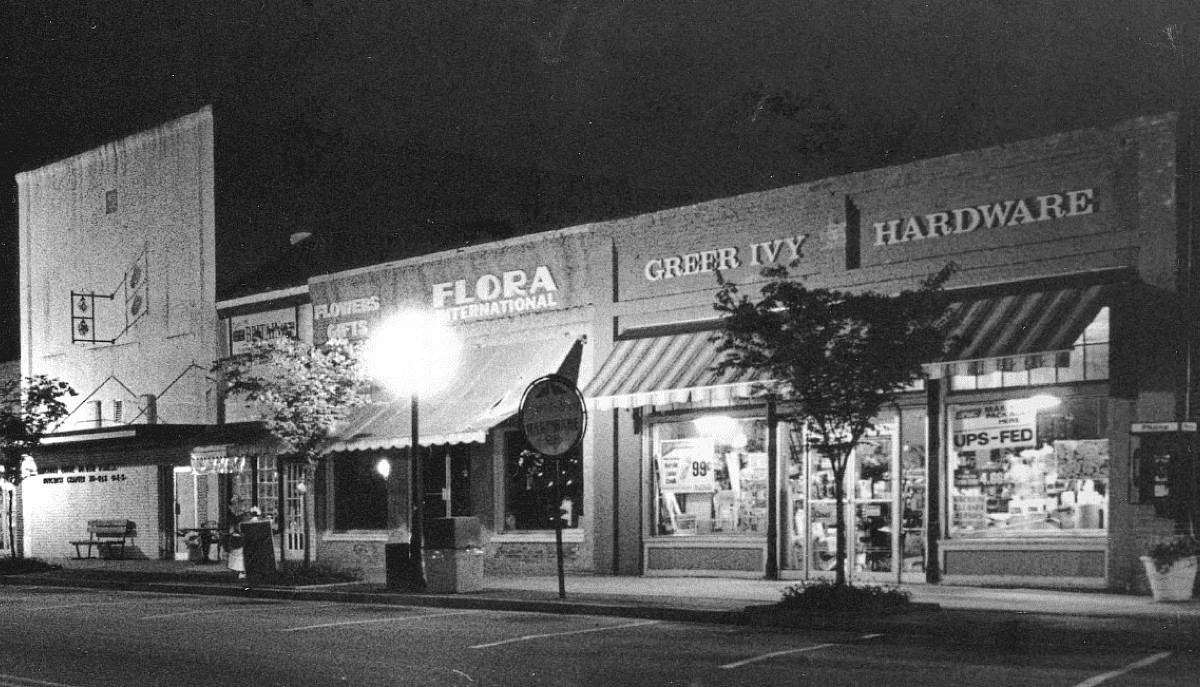



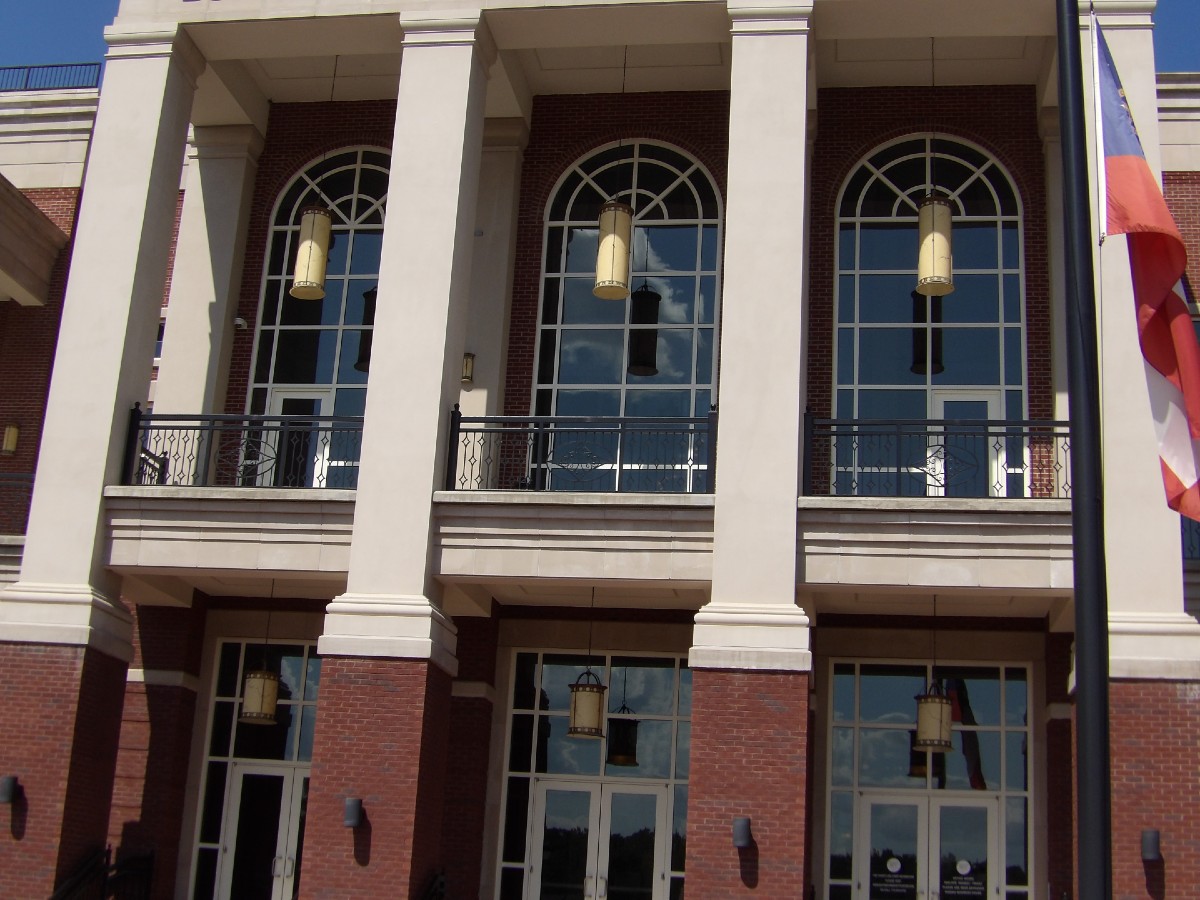







Follow Us